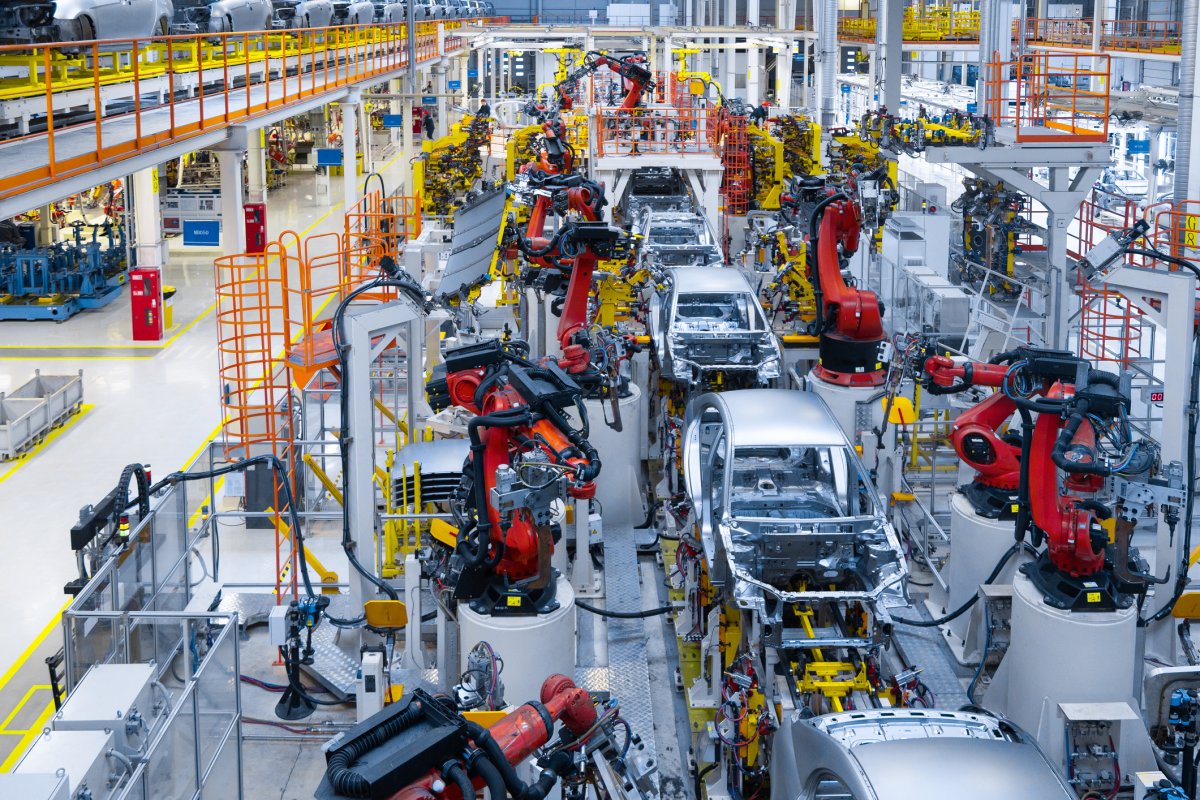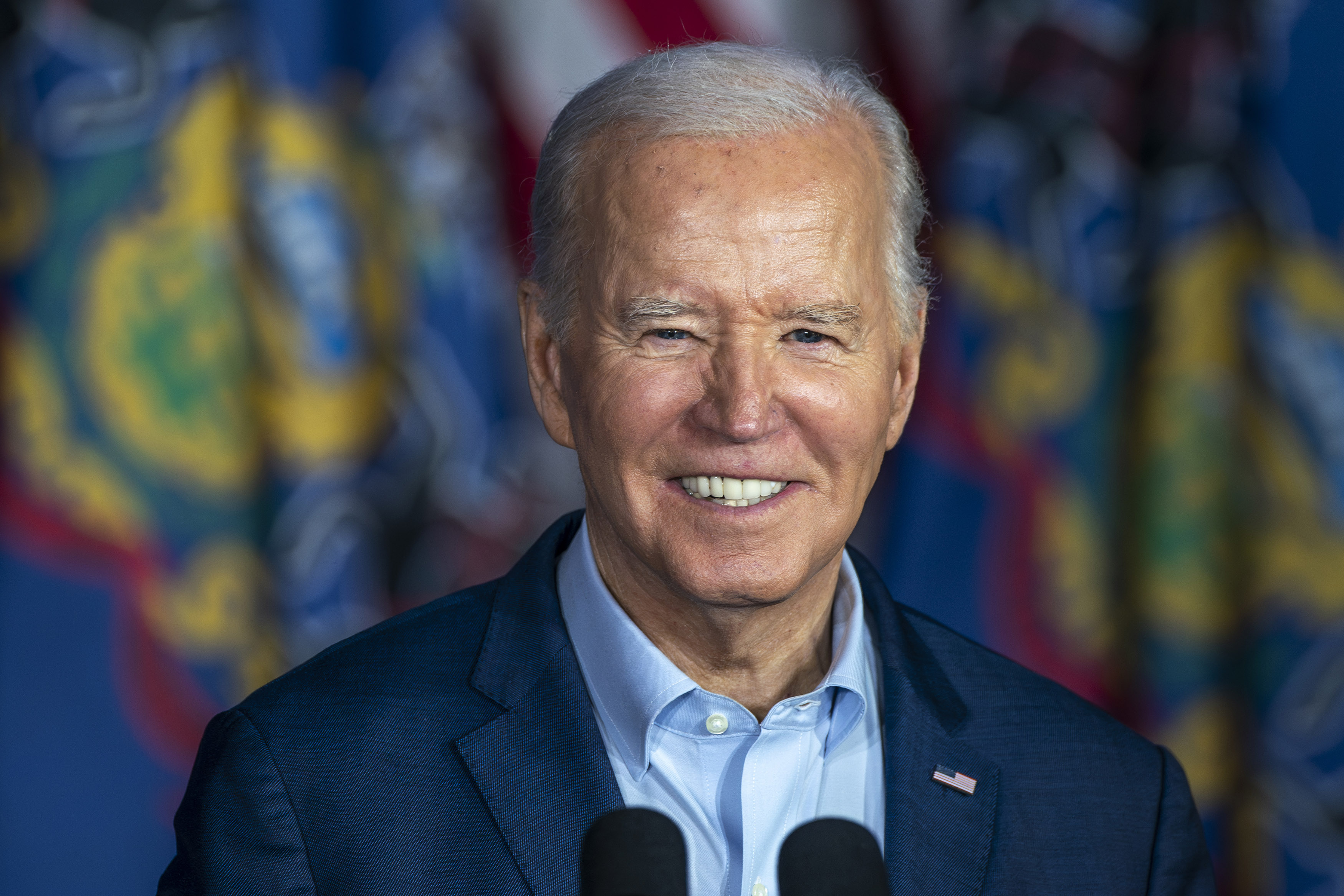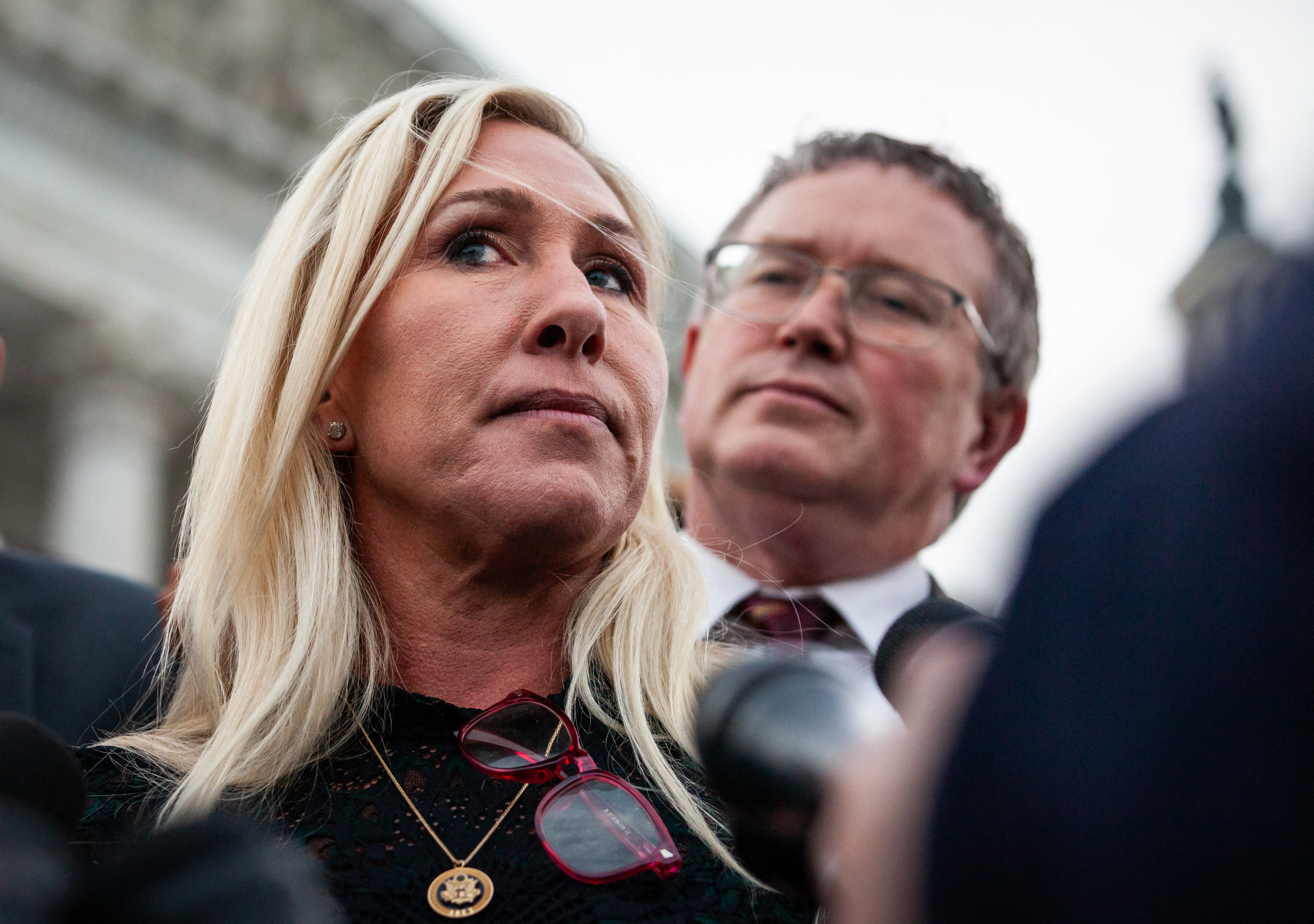The United Auto Workers (UAW) have officially authorized a strike against the Big Three automakers, with one worker telling Newsweek that he understands the decision even though the union's list of demands is "not 100 percent realistic."
UAW President Shawn Fain announced today that the union's strike authorization vote from about 150,000 union workers passed with a current combined average of 97 percent across Ford, General Motors (GM), and Stellantis.
The vote does not guarantee a strike will be called, only that the union has the right to call a strike if the Big Three refuse to reach "a fair deal" in the UAW's eyes before their current contracts expire on September 14.
"Our union's membership is clearly fed up with living paycheck-to-paycheck while the corporate elite and billionaire class continue to make out like bandits," Fain said from Louisville, Kentucky, where he plans to join picket lines later today. "The Big Three have been breaking the bank while we have been breaking our backs."

UAW leadership and workers feel short-changed on myriad issues. Their demands include:
- The elimination of wage tiers, similar to how the Teamsters came through for UPS workers to recently avoid a strike.
- Double-digit pay raises commensurate with 40 percent pay spikes for the Big Three's CEOs in the past four years.
- A restoration of cost-of-living adjustments (COLA).
- Pension benefits for all employees, including new hires.
- Re-established retiree medical benefits.
- The right to strike over plant closures, as 65 U.S. plants have closed in the past two decades.
- "Significant" increases in retiree pay.
- More paid time off.
"Ford is proud to build more vehicles in America and employ more UAW-represented hourly workers in America than any other automaker," a Ford spokesperson told Newsweek via email following the UAW's announcement. "We look forward to working with the UAW on creative solutions during this time when our dramatically changing industry needs a skilled and competitive workforce more than ever."
"We continue to work hard with the UAW every day and bargain in good faith to ensure we get this agreement right for our team members, our customers, suppliers, the community and the business," a GM spokesperson told Newsweek after Friday's announcement.
Jodi Tinson, a spokesperson for Stellantis, told Newsweek earlier in the week that product allocation for its U.S. plants "will depend on the outcome of these negotiations, as well as a plant's ability to meet specific performance metrics including improving quality, reducing absenteeism and addressing overall cost."
She made the comments in reference to UAW Vice President Rich Boyer's statements made Sunday during a solidarity rally in Warren, Michigan, in which he said that Stellantis has threatened to move production of the current Ram 1500 pickup truck from a factory in suburban Detroit to Mexico.
"The discussions between the Company and the UAW's bargaining team continue to be constructive and collaborative with a focus on reaching a new agreement that balances the concerns of our 43,000 employees with our vision for the future—one that better positions the business to meet the challenges of the U.S. marketplace and secures the future for all of our employees, their families and our company," Tinson said on Friday.
Prior to Friday's announcement, Michigan-based consulting firm Anderson Economic Group projected that a 10-day UAW strike could cost the U.S. economy over $5 billion. They also projected total wage losses of $859 million and manufacturer losses of $989 million.
On Thursday, the UAW announced that union workers at the Lordstown, Ohio-based Ultium Cells, a joint venture between GM and LG Energy Solution pertaining to electric vehicles, were victorious in reaching an agreement to immediately raise wages by $3 to $4 an hour. Hundreds of workers could also receive thousands of dollars of back pay. That deal still requires ratification.
'It's a struggle'
Phillip Bastuba, 34, is a metal modelmaker who has worked at the GM Tech Center in Warren, Michigan, for just over two years. He and his father, also an auto worker, are both UAW members.
Bastuba lives in Grand Blanc with his fiancé and two children and is the lone breadwinner of the family. He told Newsweek earlier this week that he had discussed the potential of a strike with older colleagues who have been through it previously, saying a strike authorization would not be a shock considering the present climate.
"Everybody has their own opinion about it," Bastuba said. "I don't think two people really think of it the same but I obviously I support most of what the UAW is going for and what all the brothers and sisters are fighting for.
"I think that they're shooting extremely high, and that's usually what they'll do. They'll shoot really high and then they'll try to meet somewhere [in the middle]. I don't think it's 100 percent realistic, but you know, somewhere in the realm of what it should be," he said.
Local and national economic conditions are on everyone's minds, Bastuba added. Situations for workers of different ages and backgrounds come into play.
"For more or less, [older auto workers are] set," he said. "They're older guys that bought their houses for $50,000 40 years ago like they don't really have too much to worry about.
"But a lot of younger guys, it's kind of a struggle on me personally. I'm the only one [who] works in the house. My fiancé, we have two kids so that's a job on its own," he said. "So yeah, it's definitely a stressful thing and I don't want to have to strike. It'll definitely take its toll. But, you know, you have to try to get what we think we deserve."
UAW led by 'militant' brass
Marick Masters, a business professor at the Mike Ilitch School of Business at Wayne State University, told Newsweek earlier this week that although a formality, the UAW's procedural step to authorize signals a new era in the labor union's near 90-year history.
The prospect of a strike is a "distinct possibility," he said, based on how negotiations have taken place and the short time between now and the contract's expiration.
"The strike vote is especially important this time because the specter of the strike looms large under the new UAW leadership, which has taken a much more militant posture in negotiations with the companies at this point," Masters said.
What makes present leadership different, Masters said, is their ideology and affinity with members.
"They have a different view of the world than perhaps its predecessors have had," he said. "They take a viewpoint that their labor has a rightful claim to certain shares at a profit and that gives them a higher stake in terms of what they expect companies to share as they continue to make profits, also part of the process of production.
"And the leadership is very responsive to the rank-and-file in terms of trying to be more transparent and reflect their wishes. They campaign for their positions on that, and they feel that they are not only morally but also legally bound to operate in a more democratic fashion," he said.
Daniel Clark, a history professor and U.S. labor expert at Oakland University, told Newsweek prior to Friday's announcement that this negotiation fits into a continuum in that for decades the UAW has tried to create middle-class incomes for its membership—in addition to providing secure retirement with pensions and medical care.
The auto industry has changed dramatically as well, he noted, citing foreign competition, non-union factories, and the outsourcing of jobs to foreign nations.
"But the core issues remain the same and workers would like some kind of predictability in terms of what they will make," Clark said. "They want to be able to live comfortably, not lavishly...Negotiations tend to be the way to try to resolve some of those core issues."
The American labor space has also drastically changed. Clark cited a shift more towards a kind of gig economy where workers are fending more for themselves, budgeting and evaluating how viable their own equity and financial security will be as we navigate a period of inflation and an uncertain future.
A strike, essentially, would impact businesses and Americans in a number of ways.
"I don't think anyone wants a strike," Clark said. "But as workers vote to authorize a strike, they'll be saying that they're willing to risk—however dire the circumstances would be while they're trying to live on strike funds versus how dire the situation appears to them right now."
Update 08/25/23, 1:01 p.m. ET: This story was updated with comment from GM, Marick Masters and Daniel Clark.
Uncommon Knowledge
Newsweek is committed to challenging conventional wisdom and finding connections in the search for common ground.
Newsweek is committed to challenging conventional wisdom and finding connections in the search for common ground.
About the writer
Nick Mordowanec is a Newsweek reporter based in Michigan. His focus is reporting on Ukraine and Russia, along with social ... Read more
To read how Newsweek uses AI as a newsroom tool, Click here.






